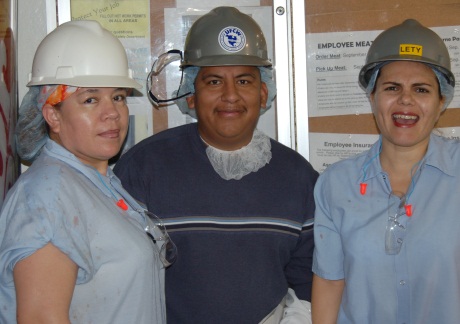All too often, we see companies putting their employees at risk in order to cut costs. This week, a monthly report by the National Council of La Raza announced that the number of fatalities for Latino workers has increased.
 The report includes a chart that shows the amount of Latino worker fatalities each year since 1997, and in 2011, there were a total of 729, the highest since 2009. Although the higher number of fatalities may have to do with a greater amount of Latinos in the workplace, it is no excuse for the lack of worker protection programs employed by corporations.
The report includes a chart that shows the amount of Latino worker fatalities each year since 1997, and in 2011, there were a total of 729, the highest since 2009. Although the higher number of fatalities may have to do with a greater amount of Latinos in the workplace, it is no excuse for the lack of worker protection programs employed by corporations.
The figures from 2011 should prompt policymakers and authority figures to amp up laws and regulations that protect workers on the job. The Occupational Safety and Health Administration is sorely in need of more funding and needs to update its policies so that it can keep up with this fast paced economy.
The Occupational Safety and Health Administration (OSHA), the federal agency responsible for enforcing and strengthening workplace safety standards, is in dire need of funding and reform to enable it to be more nimble and effective in the twenty-first century economy. With a meager $500 million budget, OSHA under the Obama administration has succeeded in hiring hundreds of additional workplace inspectors, targeting enforcement to high-violation industries, and improving prevention outreach to workers around common hazards like heat illness and falls in construction. However, OSHA’s reach remains limited; in 2010, there were only 7.3 OSHA inspectors for every million workers. Vulnerable workers are further threatened by the end-of-year
Lawmakers must also act to strengthen OSHA’s authority to regulate rapidly evolving industries, such as poultry processing, and strengthen the agency’s ability to crack down on repeat bad actors, who currently consider the agency’s weak fines and legal recourse a cost of business rather than a deterrent from breaking the law. Protecting workers from deadly injuries at work requires serious consideration of these and other important legal and regulatory reforms.fiscal debate, in which cuts to OSHA’s budget could total $46 million if sequestration proceeds.
No amount of cut costs is as valuable as a human life. It’s time for more worker protection programs in the workplace, no matter what occupation or race the employees may be. Click here to read the full NCLR report.
